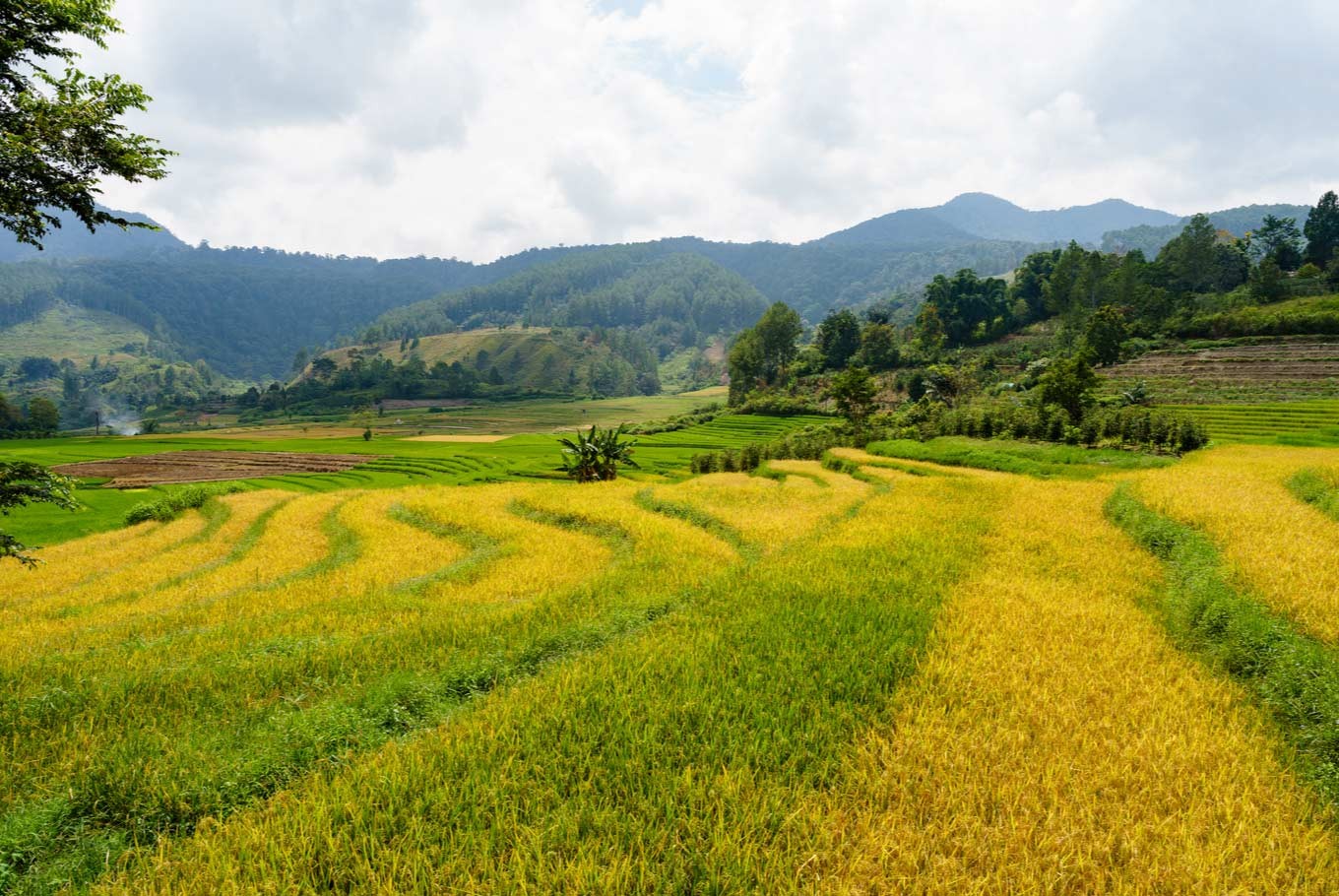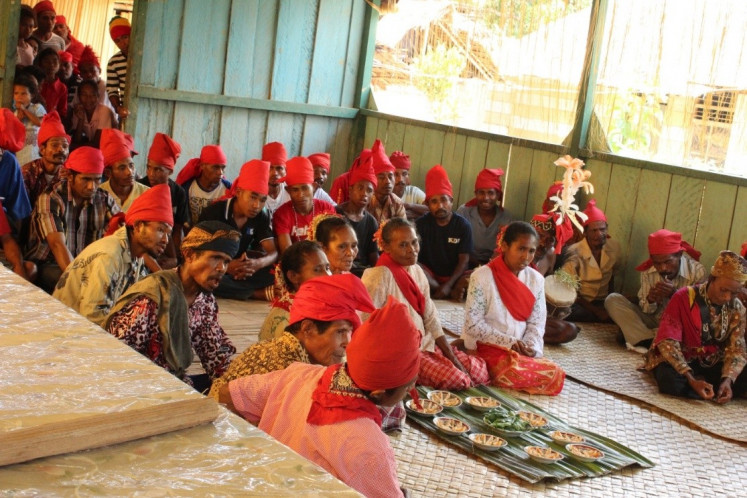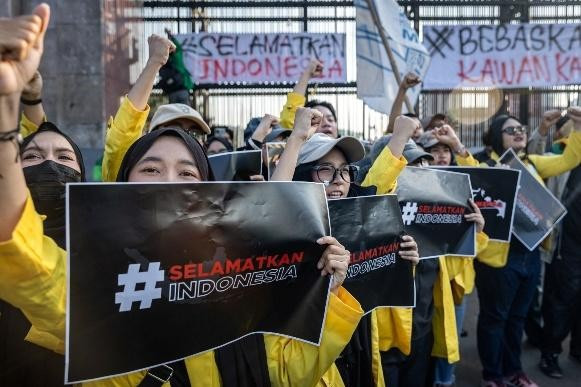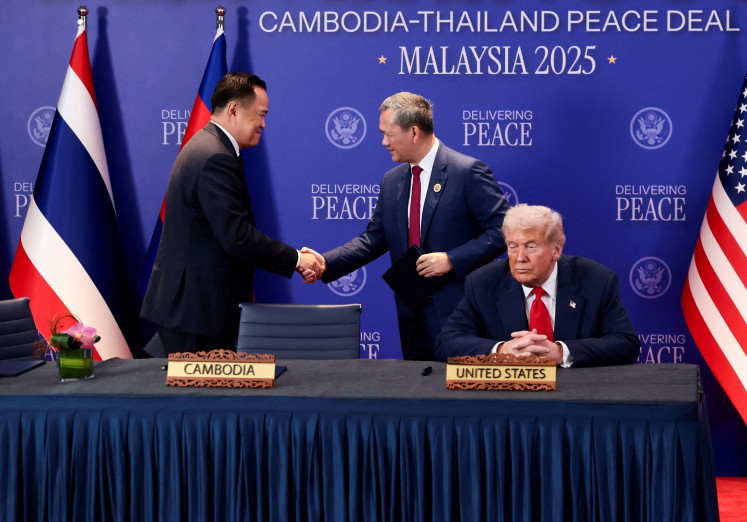Popular Reads
Top Results
Can't find what you're looking for?
View all search resultsPopular Reads
Top Results
Can't find what you're looking for?
View all search resultsWithdrawing soldiers from rice fields urgent
The TNI’s change of guard should prompt an appropriate revision to the military’s role in agricultural development.
Change text size
Gift Premium Articles
to Anyone
T
he Indonesia Military (TNI) has a new commander, with Air Chief Marshal Hadi Tjahjanto replacing Gen. Gatot Nurmantyo, who is retiring soon. As the new chief of an institution with a strong, disciplinary approach toward the chain of command, it is not surprising that the public is curious about Hadi’s policies, including his policy on agricultural development.
The military’s direct involvement in agriculture began when Gatot was the Army chief of staff. Gatot and the agriculture minister signed a memorandum of understanding in January 2015 on a special effort to increase rice, corn and soybean production. The minister then issued a regulation that served as a guideline on accelerated activities for food self-sufficiency that justified the TNI’s involvement.
The regulation stipulated the scope of the TNI’s activities, including the development of agricultural production facilities (irrigation, land, seeds and agricultural equipment), cultivation technology (development of System of Rice Intensification, or SRI), crop protection, insurance and escort / assistance. [Not sure how “escort” relates here. Could writer mean “monitoring and supervision”?]
The basic strategy focuses on integrated escort and assistance for agricultural extension staff, students/lecturers and the Army. Meanwhile, the key performance indicator was the provision of the assistance by 50,883 non-commissioned officers affiliated with the civilian administration, better known as Babinsa.
Specifically, through the guideline the director general of food crops asked the Army in 2017 to escort, assist and help farmers achieve the production target and to be regularly present in the field. Furthermore, the TNI was also asked to empower farmers groups and help them report on implementing the activities, from the planting to the production stages.
The military’s involvement in the agriculture sector has triggered public criticism, as it was not in keeping with the formal understanding of the agricultural extension as learning for farmers. Law No. 16/2016 on Agricultural Extension System, Fishery and Forestry (SP3K) says that the extension is a learning process for the main actors and businesspeople to be willing and able to help and self-actualize access to the market, technology, capital and other resources. The aim is to increase productivity, business efficiency, farmers’ incomes and welfare and promote awareness of environmental conservation.
As a learning process, the extension program does not only aim at increasing production through the TNI’s involvement, but through changing behaviors, skills and attitudes toward adopting innovation in a focused, gradual and sustainable manner.


















